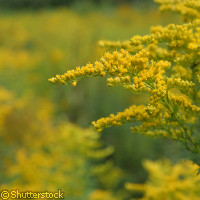Ragweed allergy on the rise in Europe
Increasing numbers of Europeans are suffering from ragweed allergy, according to EU-funded research published in the journal Allergy. The surprising findings highlight the rapid spread of ragweed across Europe, and the scientists call for pan-European action to monitor trends in the spread of the problem. The study is an outcome of the GA2LEN ('Global allergy and asthma European network') project, which is financed under the 'Food quality and safety' Thematic area of the Sixth Framework Programme (FP6). Ragweed (Ambrosia artemisiifolia) is a common weed in much of North America, where it is a leading cause of allergies. According to the Asthma and Allergy Foundation of America, some 10-20% of Americans suffer from ragweed allergy. As with other forms of hay fever, the symptoms include a runny nose, sneezing, puffy or irritated eyes, a stuffy nose and an itchy nose and throat. Symptoms begin in late summer when the plants release their pollen, and can persist until the first frosts of winter kill the plants. Until now, it was thought that ragweed allergy in Europe was quite rare, being largely confined to Hungary (where the arrival of ragweed coincided with the end of collective agriculture) and a few other isolated spots. In this latest study, the scientists used standard skin prick tests to ascertain the sensitivity of people across Europe to a range of indoor and outdoor allergens, including ragweed. To the researchers' surprise, ragweed sensitisation was above 2.5% (the established threshold for high prevalence) in all the countries tested except Finland, where prevalence was 2.4%. Sensitivity was highest in Hungary, where 58-60% of those tested were found to be sensitised to ragweed. However, high rates of sensitisation were also detected in Denmark (almost 20%), the Netherlands (15%) and Germany (14%). Interestingly, almost a quarter of those found to be ragweed sensitised also had symptoms of asthma. 'The prevalence of ragweed sensitisation is clearly above 2.5%, the currently accepted threshold for 'high prevalence',' said Professor Torsten Zuberbier of the Charité University of Medicine in Berlin, Germany. 'The study highlights the spreading of Ambrosia pollen and dissemination of the plant throughout Europe.' The researchers warn that as ragweed is known to travel long distances, eradication programmes limited to individual countries will not succeed. Furthermore, the changing climate could also promote the spread of the highly allergenic plant throughout Europe. 'GA2LEN therefore calls for a pan-European surveillance system to carefully monitor trends in sensitisation patterns which might allow coordinated counter-measures,' commented Professor Zuberbier.



